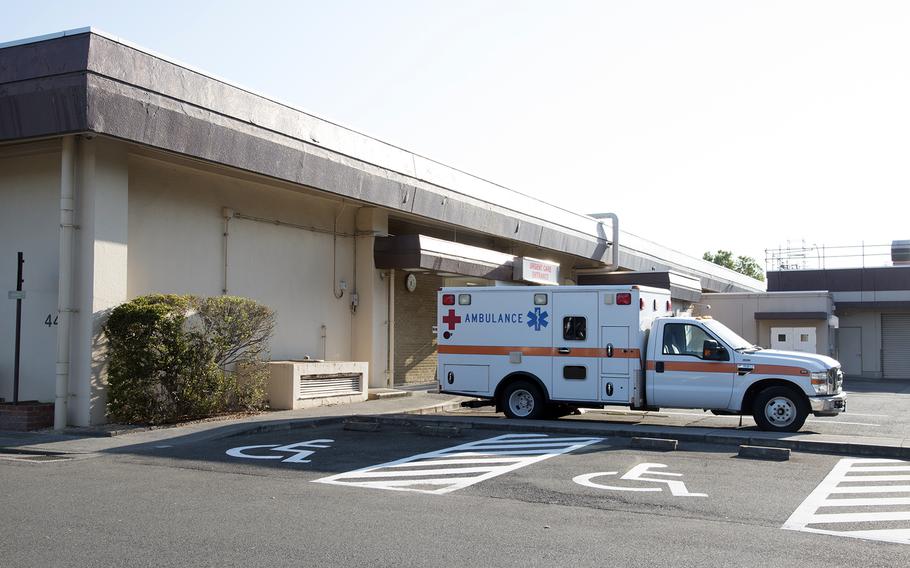
The 374th Medical Group cares for patients at Yokota Air Base, the home of U.S. Forces Japan in western Tokyo. (Kelly Agee/Stars and Stripes)
YOKOTA AIR BASE, Japan — Patients may experience delays in appointments and services as U.S. military health care providers across the Indo-Pacific switch to a new electronic recordkeeping system in October.
Yokota, the headquarters of U.S. Forces Japan in western Tokyo, warned of longer-than-normal wait times while Military Health System Genesis comes online and new personnel arrive.
“Please be patient as we work through these challenges to make your future experience better,” Yokota’s 374th Airlift Wing announced Aug. 9 on its official Facebook page.
Once it’s up and running, MHS Genesis will allow patients to access their health records, provide more efficient management of chronic, complex and time-sensitive health conditions and allow patients to communicate directly with providers, according to a video posted Wednesday by Yokota’s 374th Medical Group.
An advocate for civilian employees’ health care at Indo-Pacific bases advised that all military health care consumers should plan for the system update.
"The implementation of MHS Genesis across Asia will undoubtedly impact those seeking care from military treatment facilities, for both Tricare insured and space available patients,” Robyn Penedo, a spokeswoman for Japan Civilian Medical Advocacy, told Stars and Stripes via Facebook Messenger on Aug. 17.
Defense Department civilian employees and contractors may make appointments at military hospitals and clinics on a space-available basis or find care at civilian providers in their host countries.
Until MHS Genesis comes online Oct. 28, Yokota’s medical group suggests patients download their medical records and ensure they have enough prescription medication.
The medical group has scheduled a town hall meeting 4-6 p.m. Thursday at the base Officer’s Club ballroom to questions about the new system. The U.S. Army has already hosted town halls at Camp Zama, the headquarters of U.S. Army Japan, and at Camp Humphreys, South Korea, the home of U.S. Forces Korea, 2nd Infantry Division and Eighth Army.
Until October, patients can expect to experience reduced appointment availability and longer waits for lab and radiology results, according to information Yokota’s medical group provided in an infographic.
DOD began electronic health care documentation in 1979, according to Health.mil, the official website of the Military Health System and the Defense Health Agency.
Deployment of MHS Genesis started in 2017 at military bases in the Pacific Northwest, followed by 25 military hospitals and clinics in the United States, according to Health.mil.
Penedo said the advocacy group is gauging the effect the new system will have on health care availability for DOD civilian employees already fighting to maintain their access to military hospitals and clinics.
“We have also noticed that the switch to MHS Genesis has coincided with a switch in billing software, which is affecting each base differently,” she said. “We are tracking that this has had significant effects for Space A families on Yokosuka Naval Base, in particular. We are eager to hear from the affected community members so we can gather data for outreach to Congress as we continue to monitor and advocate for healthcare for the military community in Japan. Please send your experiences to info@JCMAdvocacy.org."